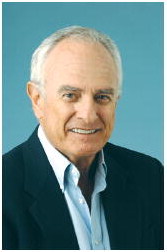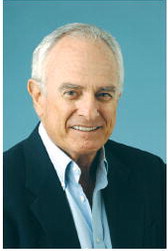Loran - Smith


Loran
Erk Russell had rare and extraordinary leadership skills. Across the Southeast and beyond, there are hundreds of football players who would quickly attest to that—the many who truly loved him and extended overachieving effort to help him win games.
He had remarkable instincts with an ability to get his point across graphically and made every player, regardless of his ability, think he was the “little train that thought it could.” Erk invoked humor to relax and to communicate. He gave of himself like no other. He cared for his players, and they knew it. This set him apart.
His leadership acumen, coupled with his mastery of the Split 60 defense, enabled him to gain an exalted reputation as an accomplished defensive coordinator at Georgia and head coach at Georgia Southern. He was in demand as a clinic lecturer. He began every clinic by writing K-I-S-S across the chalk board. “Keep it Simple Stupid.”
The signature ingredient to his success as a sage defensive swami was motivation.
Although he might use an offcolor joke, befitting locker room vernacular to make a point, he never used profanity to teach his players although he evolved from an era when “cussing” reigned supreme. It was also the put down era. With some coaches, it was commonplace to belittle athletes. Make ‘em feel unworthy.
Erk was the anthesis of that style. He whispered encouragement in their ears on the practice field. “I know you can make the play,” he would coax an eager young player whose physical stature might suggest that he was at a disadvantage.
While I never dressed out for him, I did so vicariously. I spent time with him on golf courses, at coaching clinics, Bulldog Club meetings and especially at the Rockwood Inn on the Lexington Highway outside Athens where the blue collar clientele gathered around Erk to swoon to his pontifications just as his players did—the working folk, rural and everyday types who admired him as much as Georgia football players did—because he made them feel he was one of them.
He called the railbirds who congregated on the trestle at the East end of Sanford Stadium and hooted and hollered upon the arrival of the Georgia team, “my people.”
If any man could walk with kings without losing the common touch, it was the “beloved” Coach Russell who was a natural born leader. He had a sixth sense for making everybody’s day. The defensive players were the envy of the offensive players, which is why the head coach, Vince Dooley always found time, especially on Friday’s and game day to have Erk speak to the entire team. His humor and inspirational talks inspired those on the offensive side of the ball, too.
Erk believed in slogans, truisms, and humorous vignettes to connect continued from page
with his players. Early in his career with the Bulldogs, he started headbutting his players in warmups, causing his bald head to bleed and glimmer in the sunshine of an early fall afternoon.
“That was the greatest inspiration to us,” says Frank Ros, the captain of the 1980 National Championship team—the classic example of Erk giving of himself to the team.
That tradition began long before Ros got to campus. The coach didn’t head butt his charges every Saturday afternoon, but for a big game, he often let them know, he would shed his blood for his men with whom he went to battle.
His humor was graphic and telling. Instinctive and poignant. He was always looking for that psychological edge.
Head butting wasn’t Erk being a showman, it was his way of communicating that football is a hard-nosed game and you gotta play tough. Take the fight to your opponent. Employ extra effort and put the team first. That resonated with players across the board. Without thinking about it consciously, they realized that their coach was forever putting the team first. He forever gave of himself.
However, he worried about his image. Not that he aspired to be suave and handsome—he just didn’t want his gladiator look to turn off a college president in in search of a football head coach. While he might have looked the part of the enforcer, he was the opposite.
I’ll never forget taking a flight to Ft. Lauderdale in January 1972, for the annual convention of the American Football Coaches Association. Bud Carson, who had just been fired as head coach at Georgia Tech, was on the flight. He was disconsolate, lamenting as to how he had been misunderstood by Tech alumni because he wasn’t considered a “Georgia Tech man.” The flight was far from capacity, and I took a seat beside Bud.
We talked about a lot of things related to his situation. At one point, he abruptly said, “What I needed at Georgia Tech was what Vince Dooley has in Erk Russell— somebody who can forearm them into place when they get out of line.”
I was startled. My disbelief was obvious as I told Bud that Georgia players played their hearts out for Erk because they loved him. He was such an unparalleled leader that the kids played their backsides off for him because they did not want to let Erk down.
Bud did not see the underlining modus operandi that made Erk so special. He didn’t know Erk as he thought he did. Bud saw stunning results with the Georgia defense and visualized Erk as a Marine D. I. who motivated with fear and threat, not the kindhearted man that the Bulldog defensive coordinator really was.
Make no mistake about it, Erk Russell was the consummate competitor. He had deep and abiding commitment and love of college football. He just didn’t shout it from the mountaintop. His players identified with his passion and deeply appreciated the way he made them feel— that they were part of the glory that came with winning. Winning only came about with a collective effort.
When Georgia upset Florida in 1964, there was Erk on a training table, shouting “Damn Good Team, Damn Good Team,” as the players filed into the locker room. Then there was the game in Jacksonville a few years later when Florida won with a lucky break and a fight broke out as the frustrated Bulldog team let emotions get the best of them.
The head coach chewed his team out for this unsportsmanlike conduct. Many players lost it, embarrassed and humiliated. They were crying and there in the locker room was Erk with tears streaming down his cheeks, crying with them. His players knew that he hurt when they hurt. He was frustrated when they were frustrated. He cried when they cried.
We underscore again, Erk was always giving of himself.
Following victory between the hedges, Vince always deferred to Erk whose parting shot was: “There’s nothing like being a Bulldog on Saturday night.”
There was nothing like being one of Erk’s boys. Now the Georgia Athletic Association and the Football Letterman’s Club are embarking on a fund-raising campaign to name the lettermen’s club at Sanford Stadium for the late Bulldog assistant coach. That should be a piece of cake.
A former player, Shaun Chapas, is man on the point for the campaign. While he didn’t play for Erk, Shaun knows about Erk’s image and legend. You didn’t have to play for Erk to participate in this campaign.
If you ever laughed at one of Erk’s jokes, you could help perpetuate his memory by writing a check which will add your name to the donor plaque. It will be like going behind the Green Monster at Fenway Park and signing your name like Red Sox players and opponents have done over the years.






